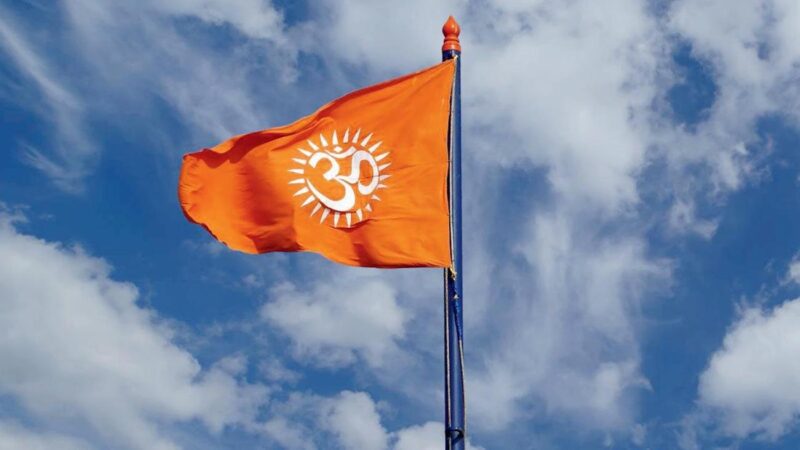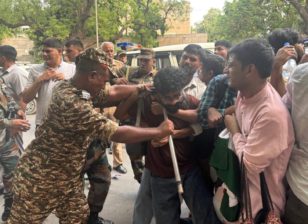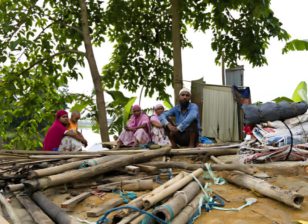In Defense of Dharma: Forces of Hindutva Cannot be Defeated by Excluding Religion From Political Discourse
Individuals and communities have an innate agency to shape their spiritual experiences in ways that resist, rather than incorporate exclusion — and this agency should be harnessed by progressive and inclusive movements.
Under its current Hindu nationalist government, India has seen a marked decline in the quality of democracy. This, in turn, has generated heated debates about the cooption of Hindu religious discourse by the forces of Hindutva, a political ideology with a violent, repressive, and exclusionary orientation, which seeks to privilege India’s majority Hindu population over non-Hindus.
This debate has implications beyond the Indian context. In several countries, including the United States, Turkey, Hungary, and Poland, right-wing forces have attempted to mobilize religious discourse in support of their exclusionary and anti-democratic agendas. There is an urgent need, globally, to counter such mobilization since it poses an existential threat to democratic processes.
However, in order to present a successful challenge to this right-wing cooption, it is imperative that we do not attempt to exclude religion from political discourse entirely but recognize, and even center, faith and faith-based practices.
Simply put, religious identity and belonging are important to many — in India and elsewhere. Individuals and communities have an innate agency to shape their spiritual experiences in ways that resist, rather than incorporate exclusion—and this agency should be harnessed by progressive and inclusive movements.
Drawing on European fascist ideologies, the Hindu right-wing political movement known as Hindutva was developed in the early 20th century. Its founders conceived of a pure Hindu state in India through the exclusion or marginalization of non-Hindu minority groups.
The current ruling party in India, the Bharatiya Janata Party, is the political offshoot of this older right-wing movement. Its rise to political power has been accompanied by increasing violence against religious minorities and concerted repression of dissenting civil society voices.
Indeed, as a direct result of the BJP’s repressive actions, international observers no longer see India as a vibrant democratic country—a status that it had largely maintained since gaining independence from Britain in 1947.




